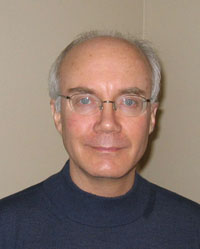Robert Margo wins cliometrics award
Robert Margo received the 2006 Clio Award for exceptional service to the field of cliometrics.

Over the weekend of June 3, the Cliometrics Conference awarded economics and African American studies professor Robert Margo the 2006 Clio Award for exceptional service to the field of cliometrics.
The term “cliometrics” reflects both the object and the method of this study: Clio is the Greek Muse of history, and “metric” indicates the field’s scientific approach. “The word ‘cliometrics’ was coined back in the 1950s,” says Margo, “and it refers to statistical and economic studies of history.” Cliometrics has enabled economists to rethink faulty economic theories by giving them the tools to spot and ignore “transient phenomena” in historical data. It allows economists to create theories that explain historical economic occurrences and also project into the future.
The Cliometrics Conference, which is funded by the National Science Foundation, has been meeting annually since 1985 to present research and facilitate interaction between older and younger members of the profession. Margo himself honored this mission by bringing two of his graduate students with him to the conference, which took place at Binghamton University in New York.
When Jeremy Atack, a professor of economics at Vanderbilt University and recipient of the 2005 Clio, presented Margo with the award, he called him an “economist’s cliometrician,” an unusual breed that “lives, breathes, and will likely die by economics (possibly at the invisible hand).”
Over the summer, Margo will be working with William Collins on an economic history of race and home ownership entitled No Place Like Home: Race and Homeownership in Twentieth Century America. Among other subjects, the book will examine long-term trends in home ownership and housing values by race, the role of racial segregation and urban unrest in the 1960s, and federal housing policy.
Margo is the author or coauthor of four books and more than a hundred articles, book chapters, and book reviews. He has also served on the editorial boards of many journals and currently edits Explorations in Economic History.